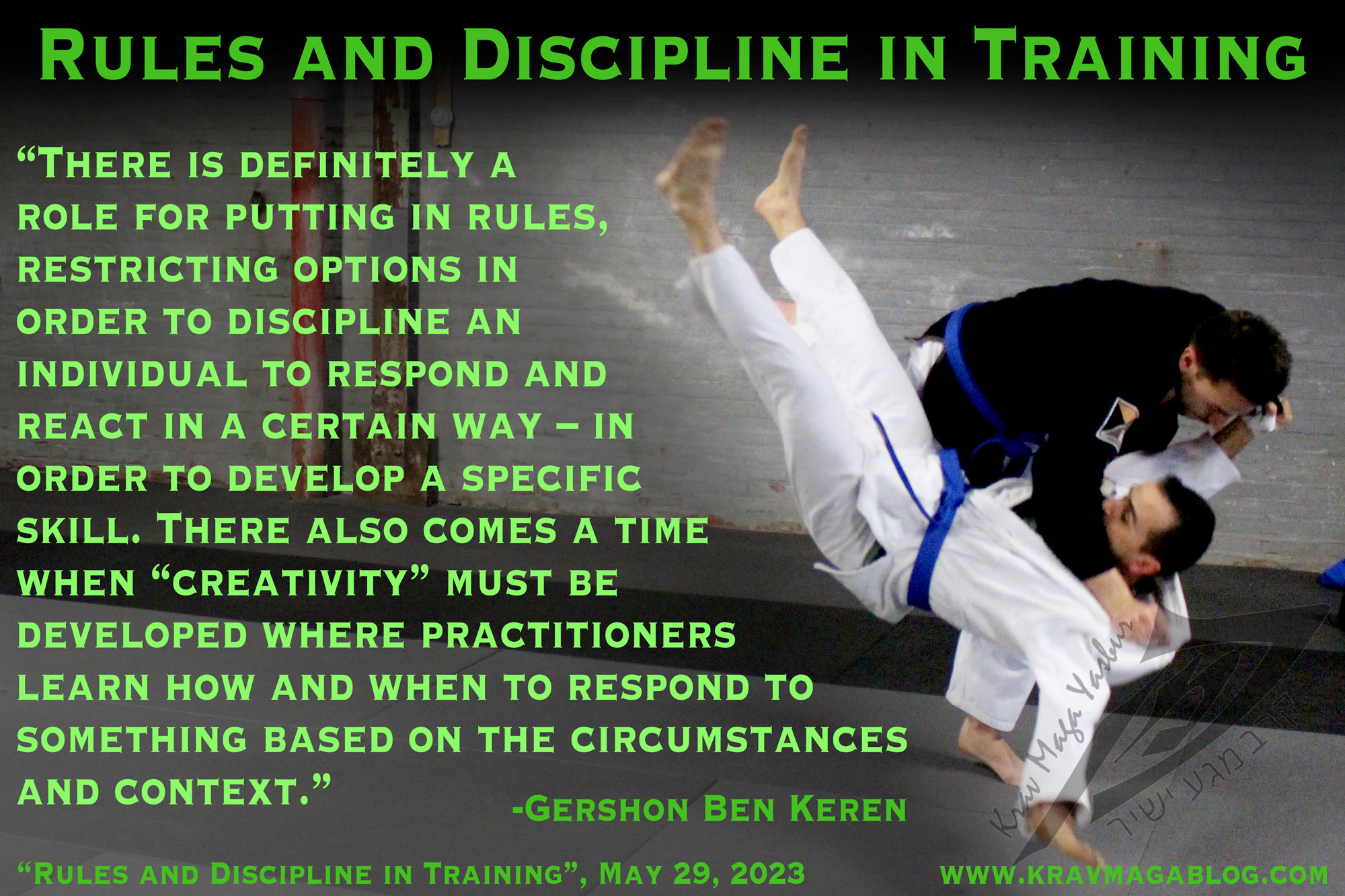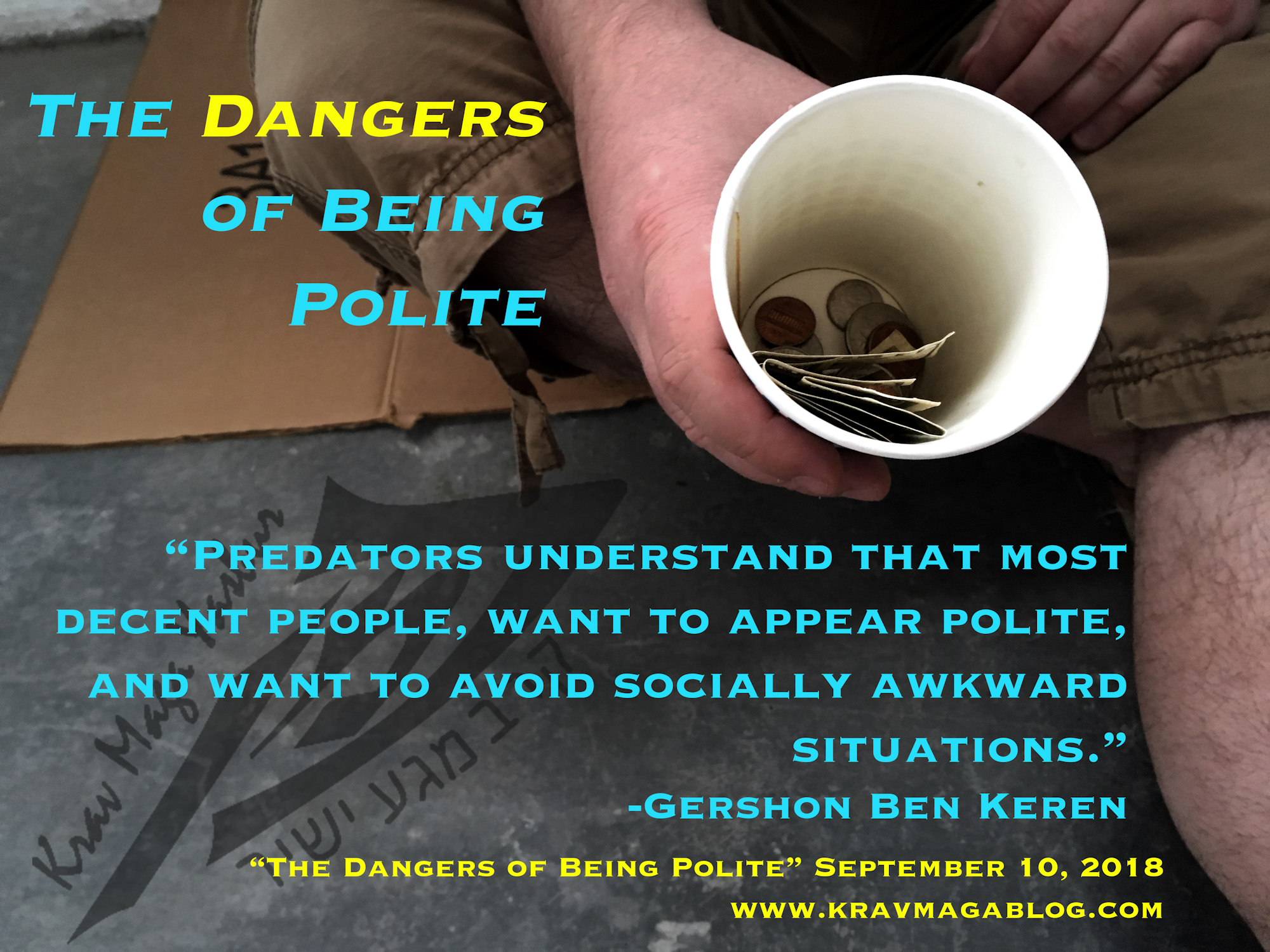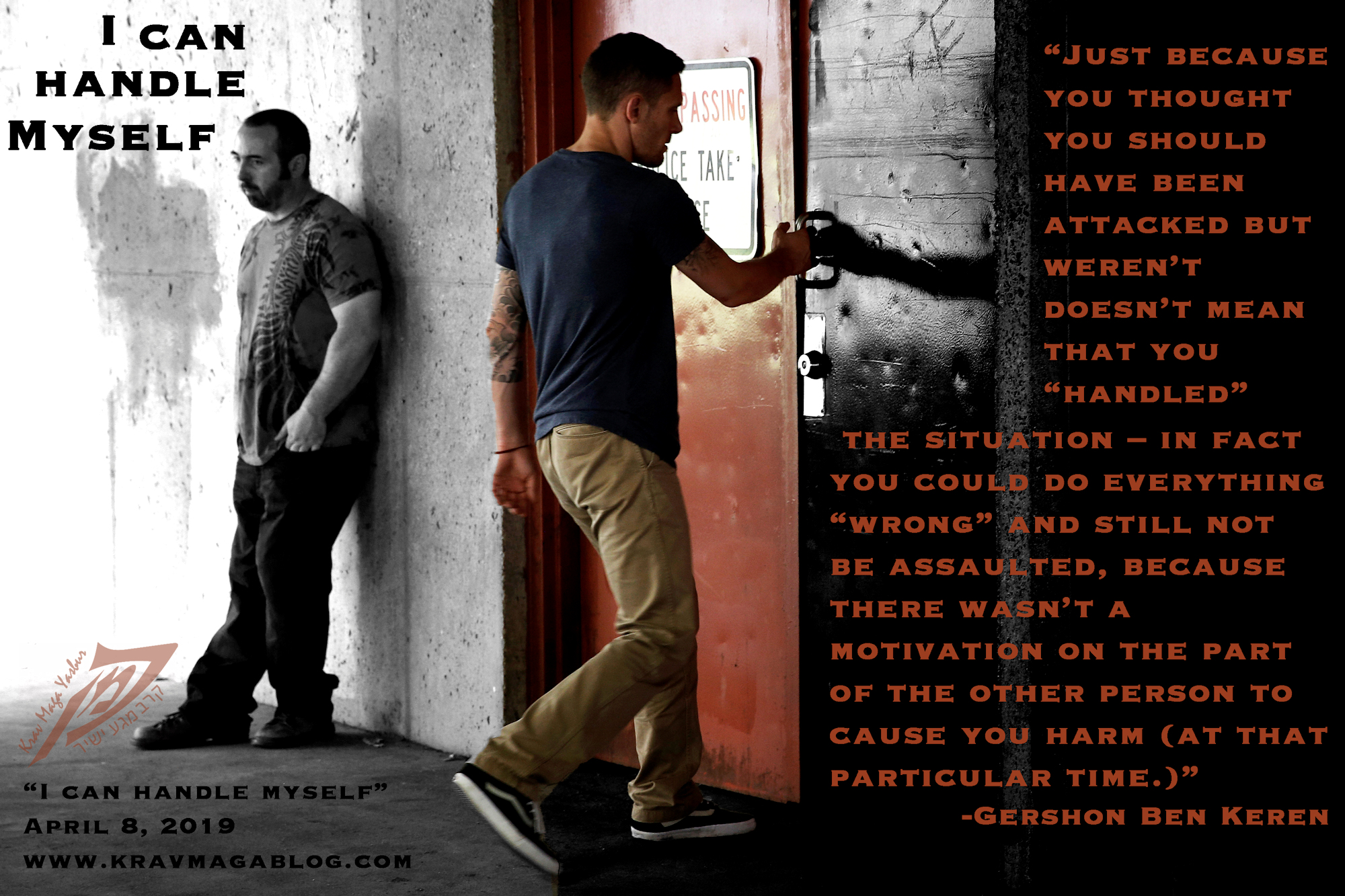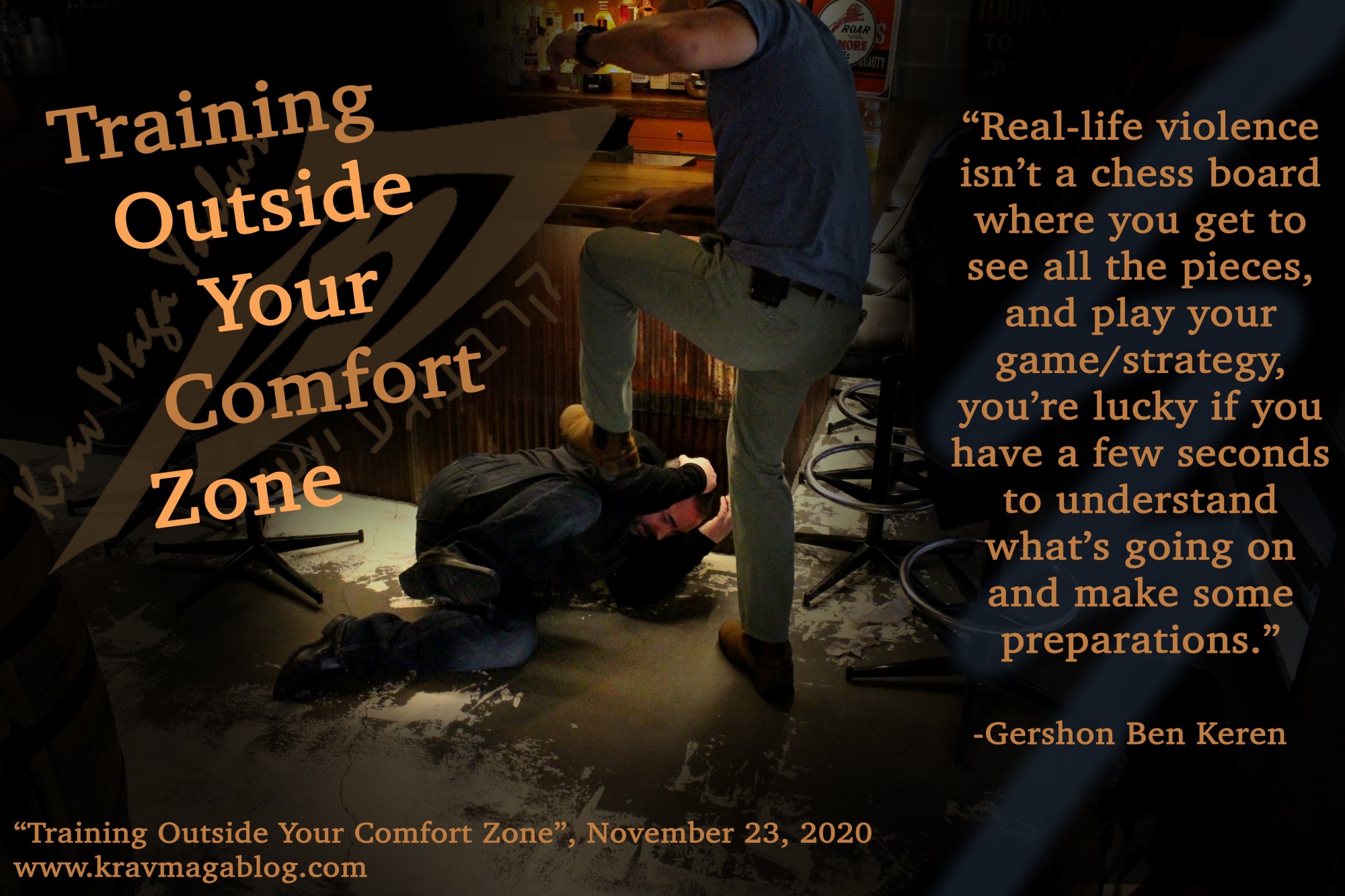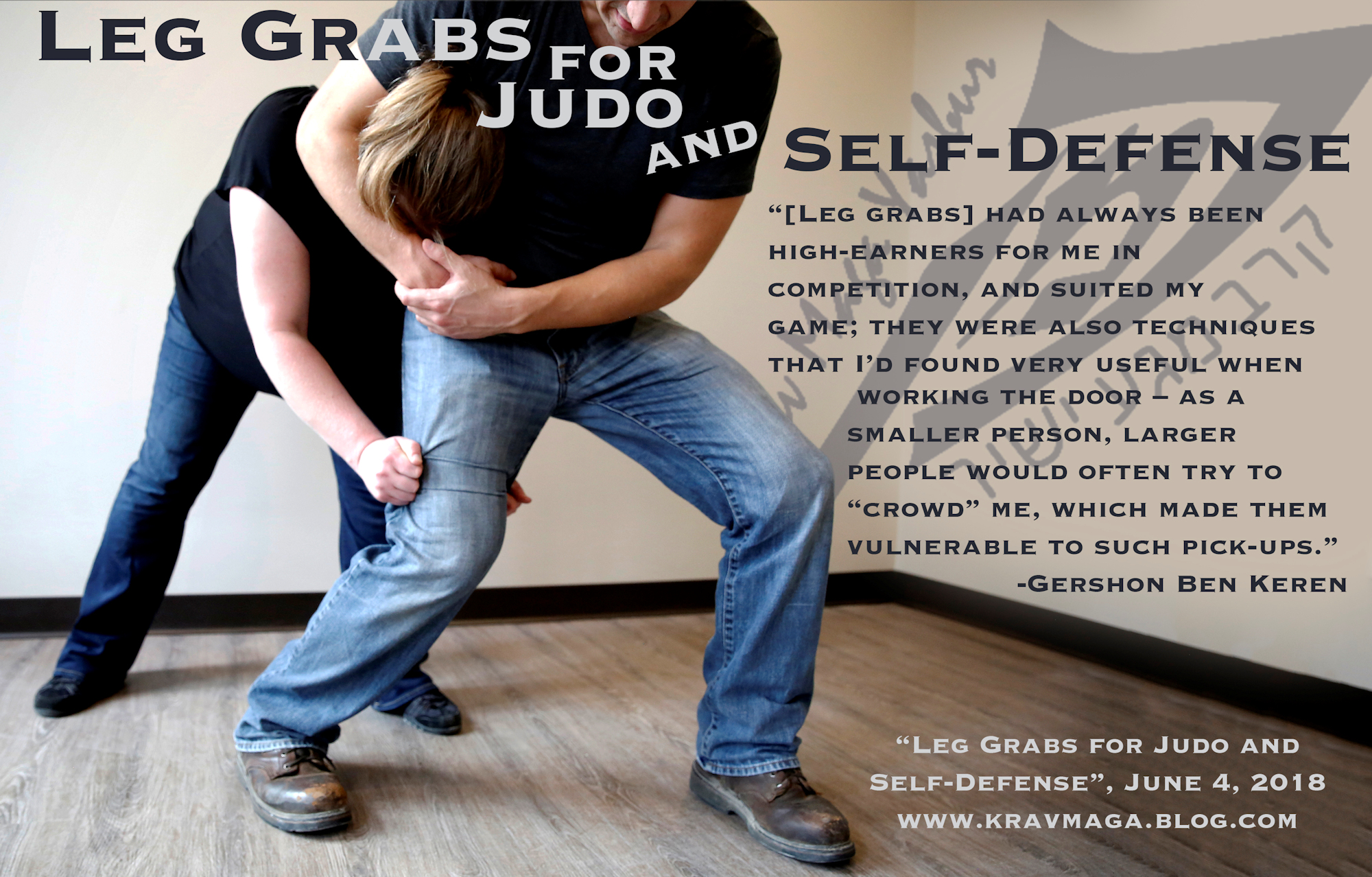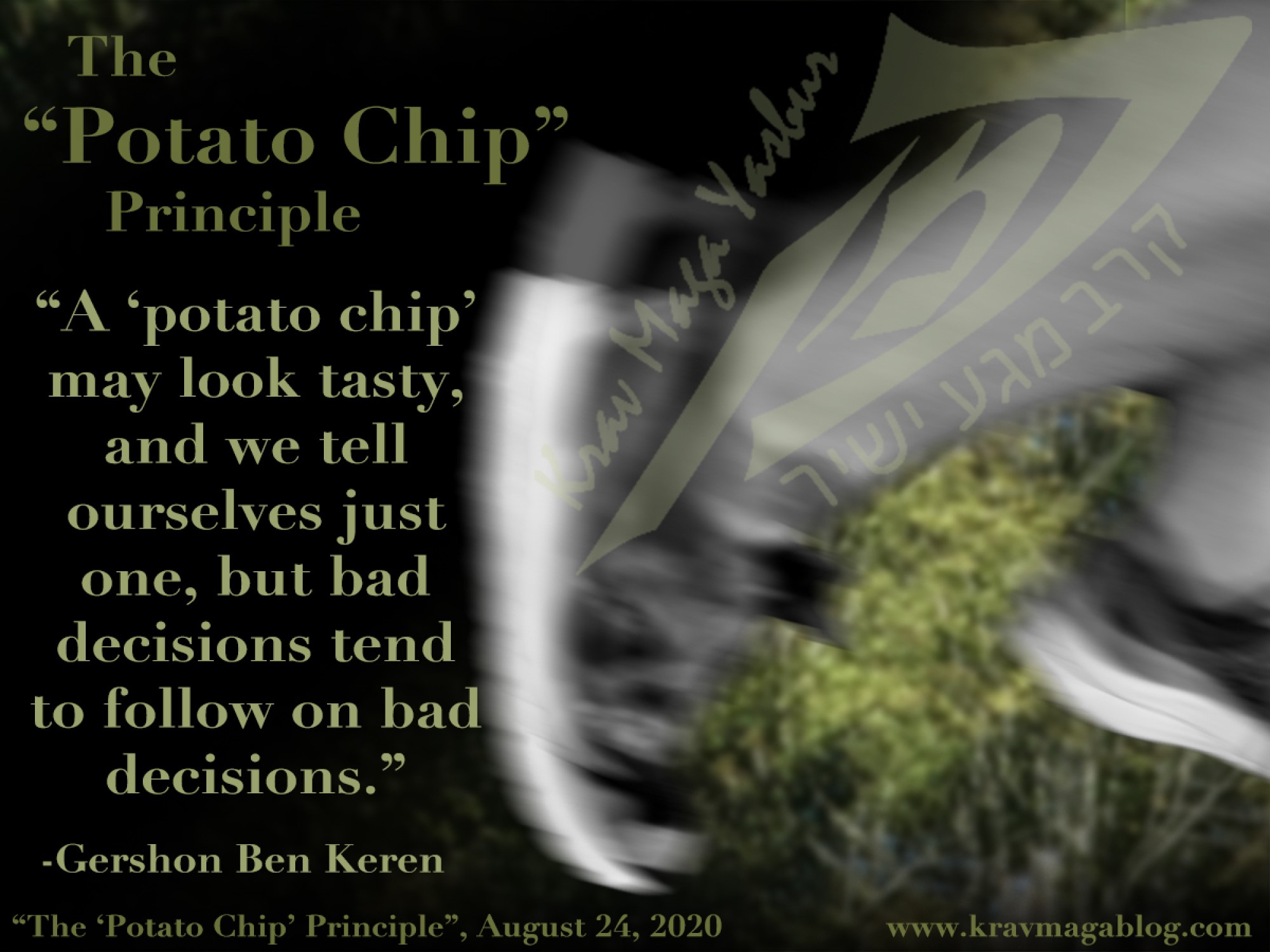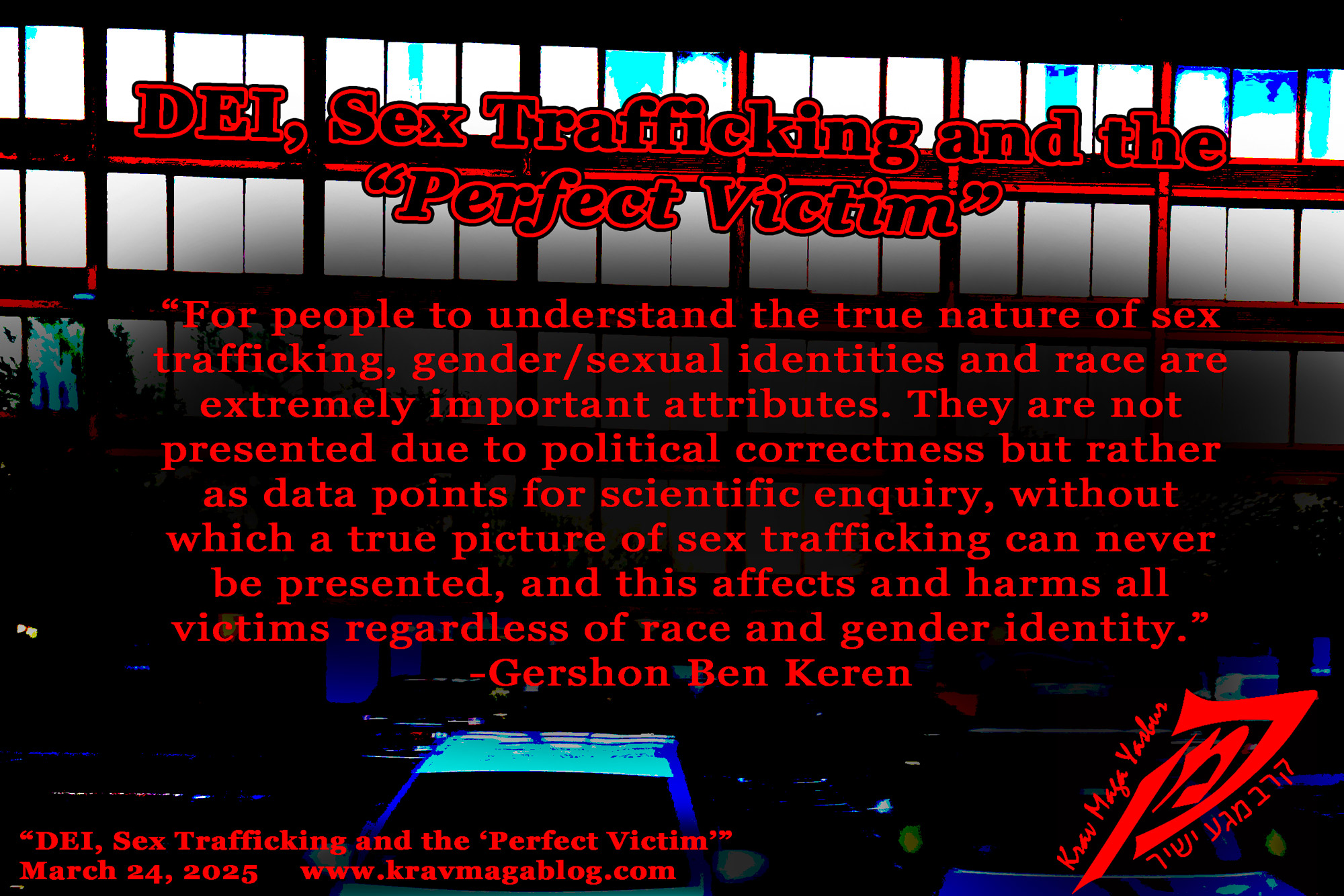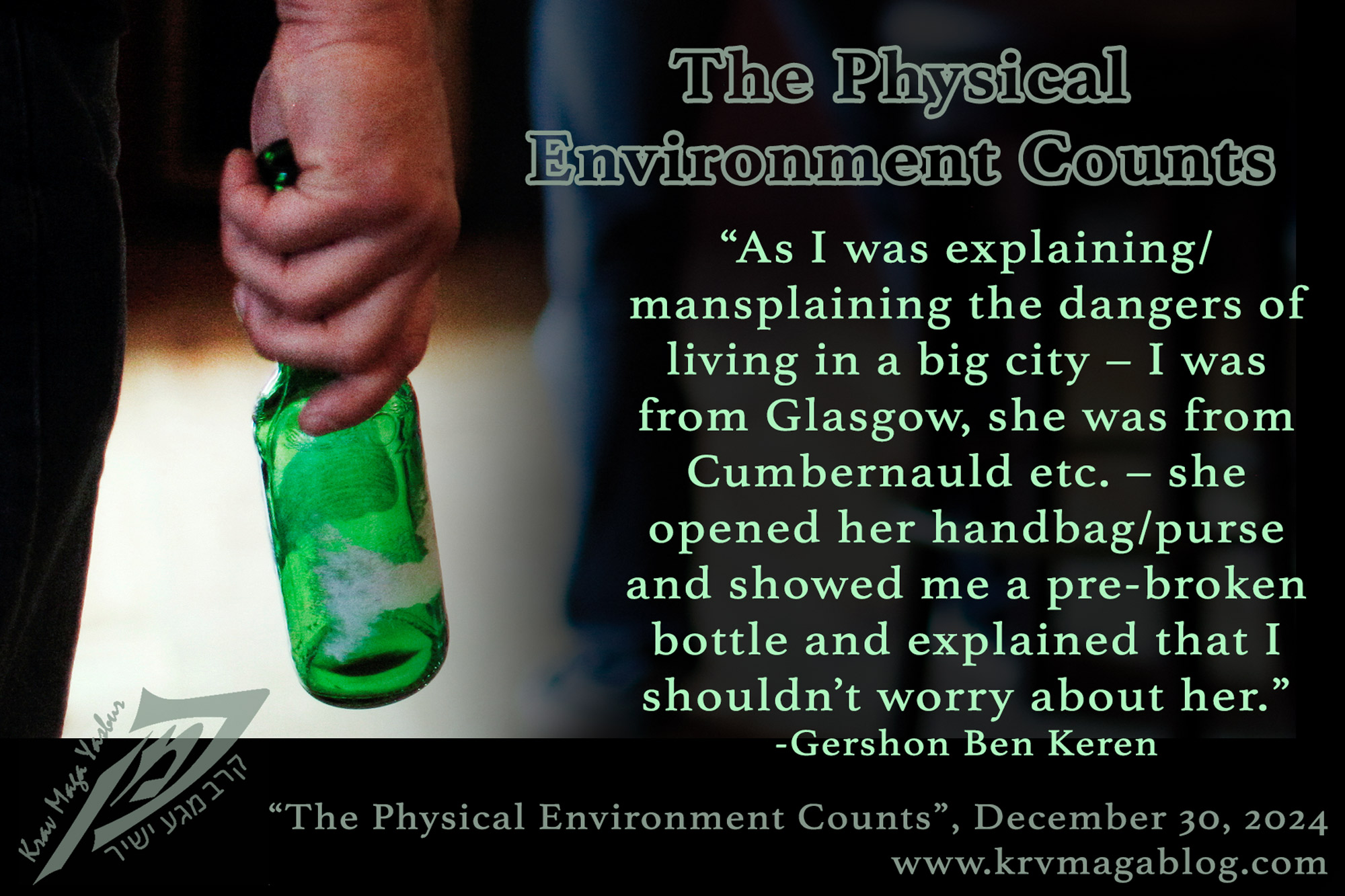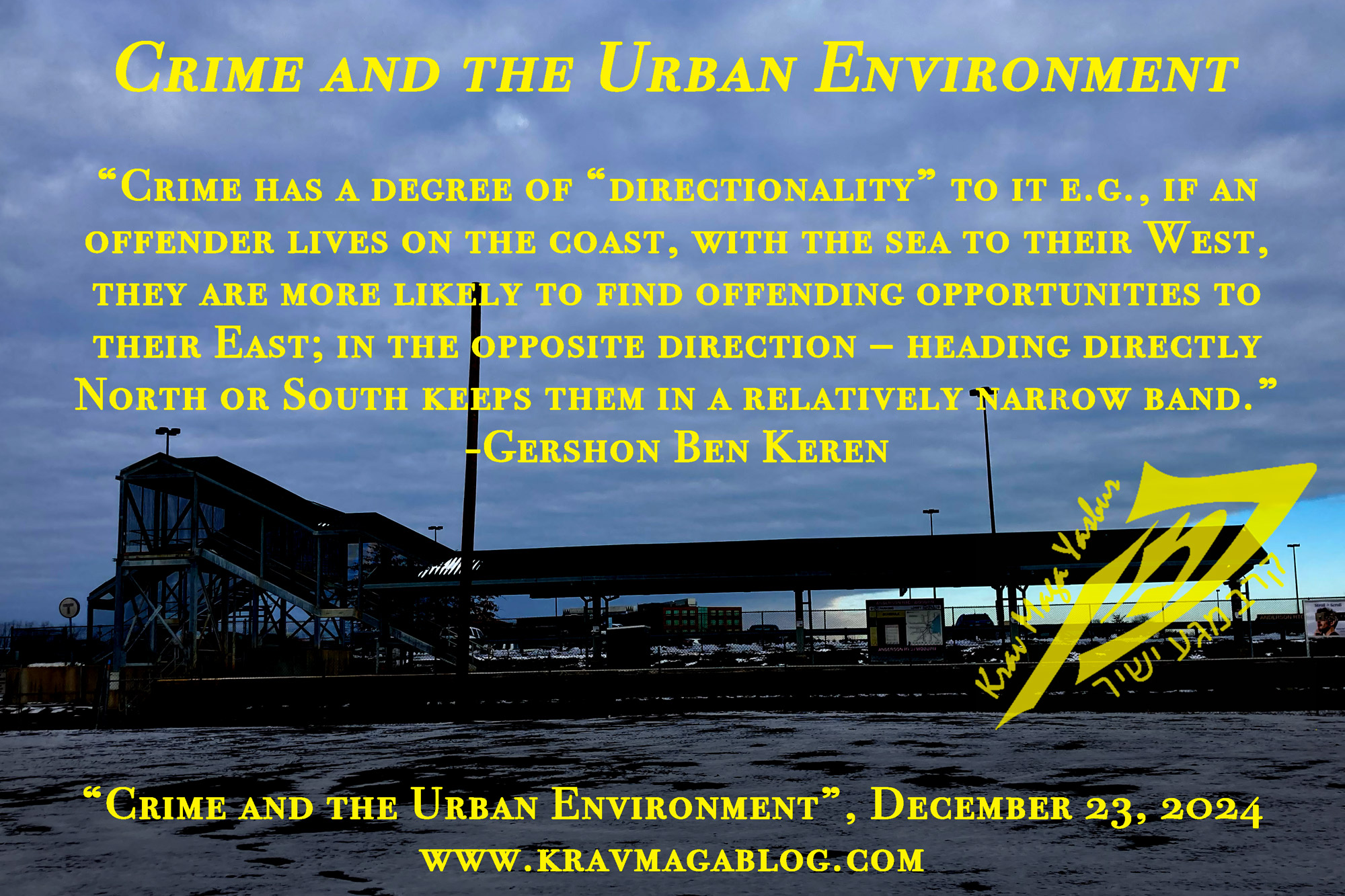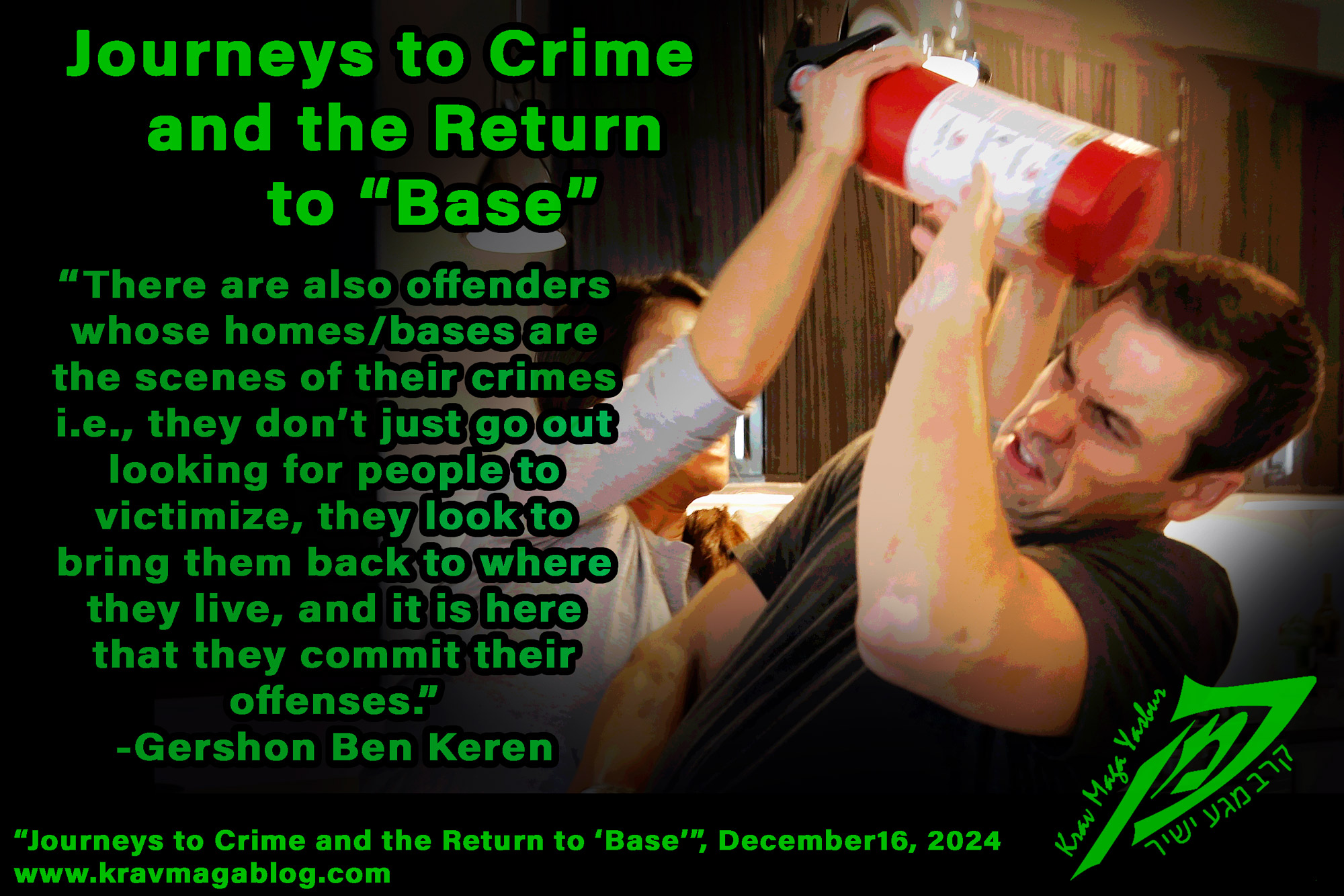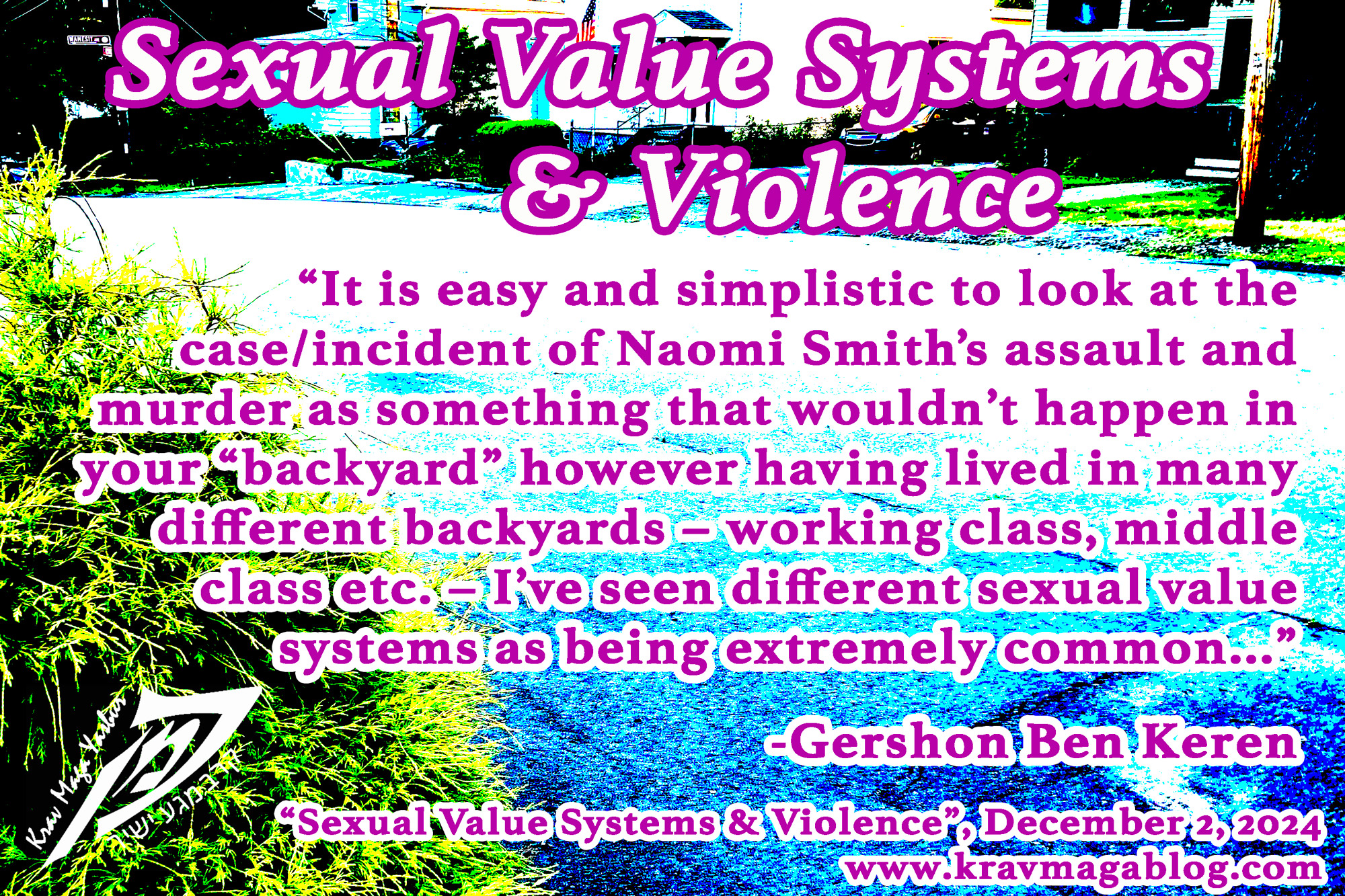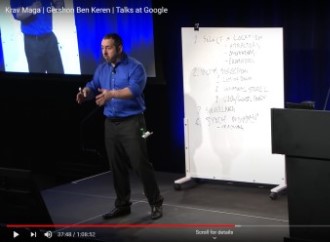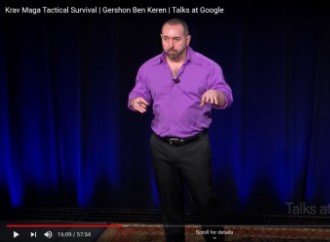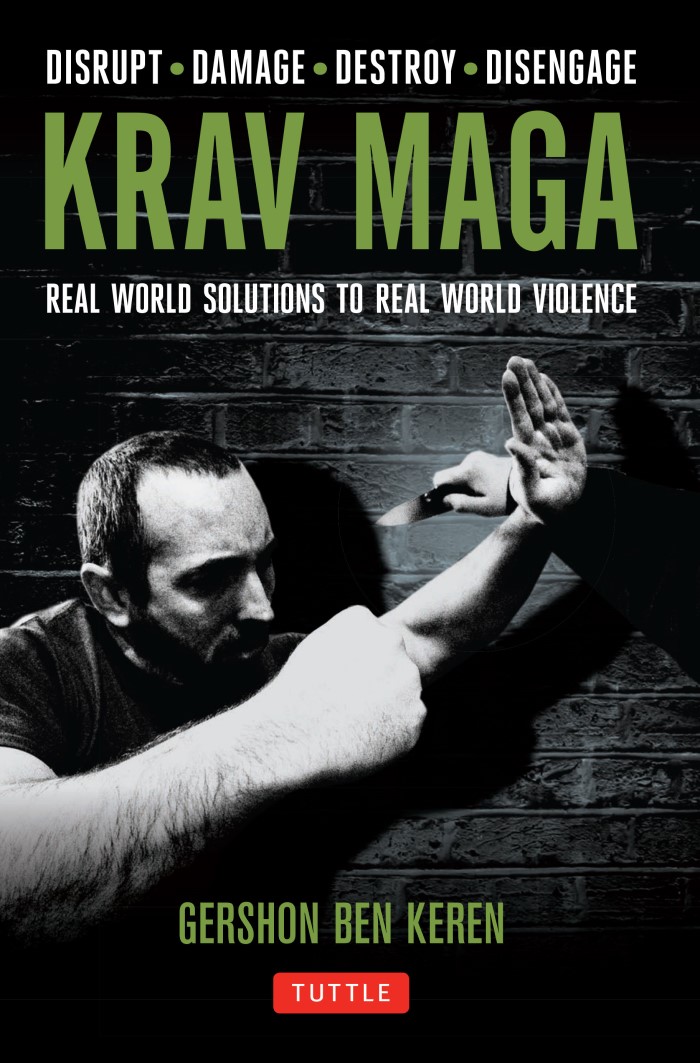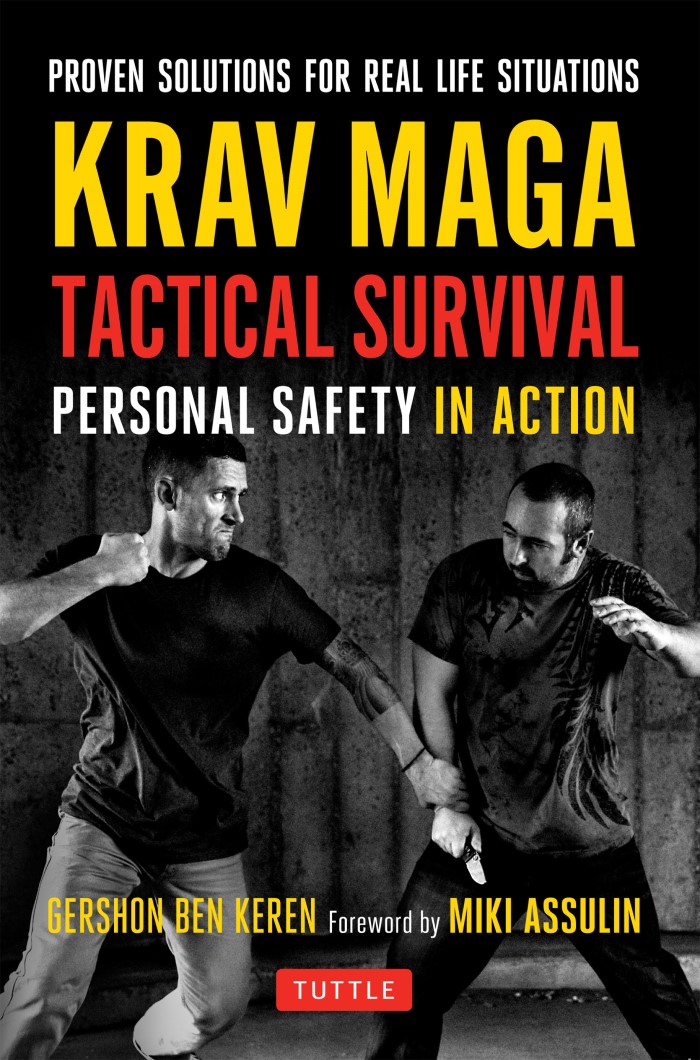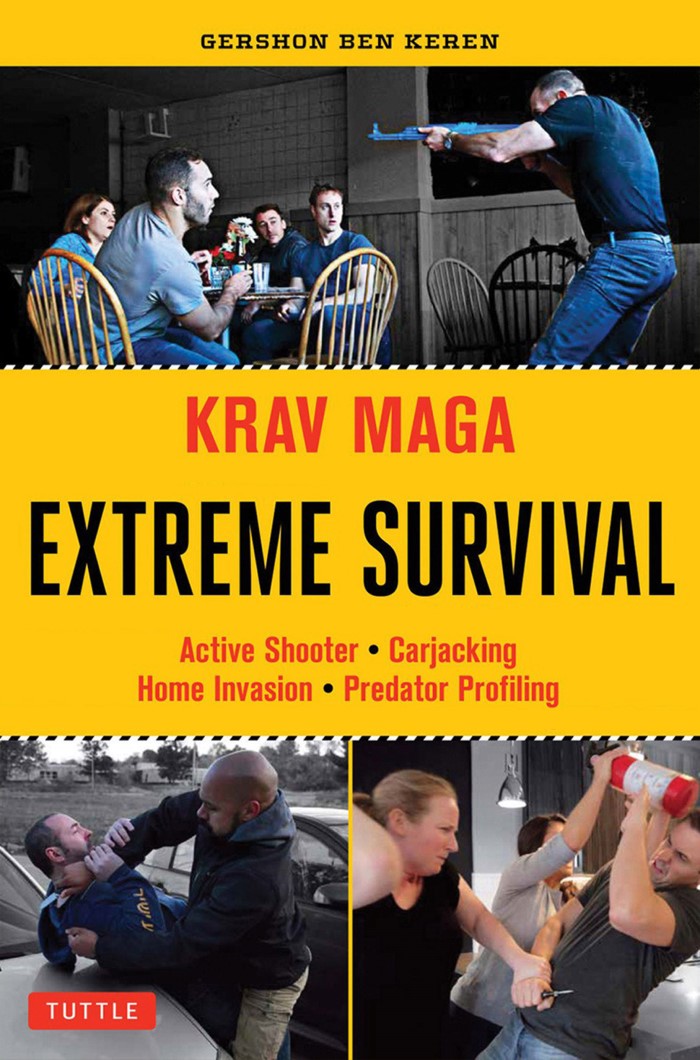The Potato Chip Principle, is an article written by Gershon Ben Keren, a 5th Degree Black Belt in Krav Maga, who teaches Krav Maga in Boston, MA. He has also authored three Amazon best-Selling Books on Krav Maga.
Richard Felson, who has done some of the most comprehensive research into violence, uses the “potato chip” principle, to explain decision-making as it relates to crime and violent offending. The idea is that no one can eat just one potato chip; once you’ve started eating one, you are going to continue to a certain point, and at some point you may lose control, and continue eating even when you know you should stop i.e. you make a decision to continue, even when you know you shouldn’t – it’s bad. From a crime/violence prevention perspective, the trick is to stop somebody from eating that first chip, because after that it becomes harder to stop, etc. I used to see this a lot when I worked bar/door security where an accident, such as bumping into somebody, became a disagreement, then a minor dispute, until it erupted into a full-blown physical altercation. A situation that could have been easily avoided, if one of the parties had taken the decision not to eat the first chip. In this article, I want to share an incident from my youth, where I nearly got caught for my involvement in a break-in/burglary, due to the process of one bad decision after another/not being able to stop eating the chips, once I’d started. It can be hard to identify the tipping-point decision, that sets you off on a certain route, and a moment of hesitation/reflection can often make the difference between exiting a situation and finding yourself in far too deep.
I wasn’t a bad kid, but I lived in a district/area where there were a good number of “bad” kids, and it was the type of community where we all pretty much knew each other; making it hard to avoid some of the more troublesome/dangerous characters. There were several pubs that turned a blind eye to underage drinking and having been able to grow a full beard since I was fourteen, I didn’t have much trouble blending in with older drinkers. One Friday night, myself and a friend were having a quiet drink (the trick to not being called out when you’re underage), when one of the older – and more reckless - members of our district, came and joined us. He normally ran with an older set, but this night he was on his own. Neither myself nor my friend, had ever had much to do with him, but he turned out to be entertaining, and when last orders were called (this was in the era when the pubs shut at 11 pm), he invited us back to his house to continue drinking – the first potato chip. Around 1 AM, after playing cards whilst listening to Frank Sinatra, we ran out of booze. I remember a guy I used to work with, who had at one stage in his life run an illegal/unlicensed bar, telling me that seemingly respectable people who wanted to keep drinking but had run out of money to do so, would do anything, and I mean anything, to get a drink (he had a lot of crazy stories to backup this claim) i.e. any rationale that was previously there went with the need for another drink. My immature 16-year old brain was caught in the same position, and I was ready to accept any idea, that meant continuing drinking, as a good one. So, when our host suggested that we could easily break into the house next door and acquire his neighbor’s wine and whisky collection, this seemed the most logical thing to do.
If anyone tells you they can pick locks, and this is the most efficient and effective way to break-in to a property, they have little to no experience of getting into places they should not. There are far simpler, more direct, and easier ways to get past a door than picking the lock – and this is something to note concerning building security. Many doors are installed incorrectly from a security perspective, with gaps that shouldn’t be there, etc., and/or spaces that get created over time as the weight of the door starts to pull on its hinges. Anyone who is skilled at breaking and entering (without simply breaking the door down) will look for these vulnerabilities to exploit first, as they are far quicker than picking the lock; lock picking may be a great party-piece but it’s certainly not a go-to strategy. However, at 16-years old, I didn’t know any of this, and when somebody with a reputation as a criminal, tells you they can easily pick a lock you start to think you are in the company of Raffles – especially when you’ve had a few to drink. The three of us – because we wanted to be able to carry as many bottles as we could – made our way out of the house, and under the cover of a garden hedge (or what we thought would give us cover), made our way to the back door of the neighbor’s house, where a series of unsuccessful attempts to pick the lock were made. After about 5 minutes, I saw the blue lights (no sirens) of a police cruiser pull up, and at that point we ran. We were close enough that I heard the car doors open and slam, by the time we were moving, and we had at least two officers give chase, as I could hear them shouting to each other. I was at the back, blindly following my friend who was following our host – the only one who knew where he was going.
I remember realizing that we were going to get caught. It’s sometimes easier to chase somebody than to be chased, as you only have to follow them. This is especially true if they aren’t sure of the area, and need to make decisions, etc. - and that was certainly the position we were in, as we started to bunch up, running into each other. We suddenly turned down the side of a house, that had trees planted close to it, so that the branches created a curtain that had to be pushed aside. That’s when the police gave up the chase. To this day, I’m not sure why and wonder if there was a moment of apprehension about following three people, one of whom was quite well built, into an area where they could have potentially been ambushed. We kept running and made our way across another neighbor’s back yard, before falling through our host’s backdoor which he’d left open, and then quickly closing/locking it. At almost the same time flashlights started to light up the back yard of his house, and those of both neighbors. We all stayed low, crouched behind furniture, as flashlights appeared at the windows. Some time shortly afterwards, we heard the police going door to door, asking people if they’d seen/heard anything etc., and then they came to our host’s door asking him the same; to this day I’m sure they knew that he was involved, and that there were other people in the house – which he denied – but realized this wasn’t an incident worth pursuing.
I remember in the early morning, as my friend and I walked back to our respective homes, talking about the potential consequences if we’d been caught e.g. we’d probably have been expelled from school, and part of our plan had already been to get out and escape from the path of crime that many of our friends were already on. One bad decision/one potato chip led to another, and fortunately for us there were no consequences. There are plenty of opportunities in life to say and do the wrong thing e.g. the smart remark we feel the need to make to someone who has somehow got in our way, etc., however, in many cases we don’t know the road that this may take us on. A “potato chip” may look tasty, and we tell ourselves just one, but bad decisions tend to follow on bad decisions.
0 COMMENTS